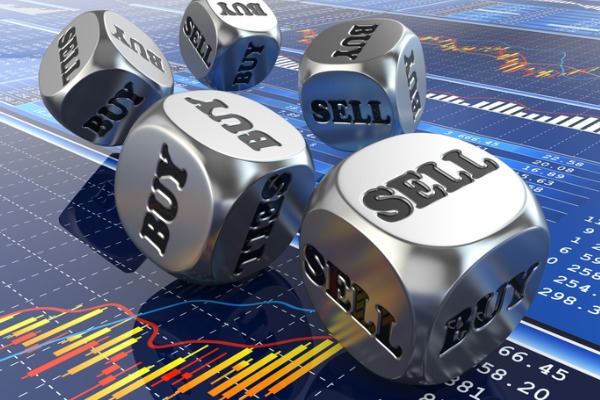Insider: US growth and profit upgrade trigger boardroom deals
One of these bosses is betting on further share price recovery, while another is taking some money off the table. Lee Wild discusses the context of both trades.
27th October 2025 08:54
by Lee Wild from interactive investor

After a poor second half of 2024, upmarket tonics firm Fevertree Drinks (LSE:FEVR) started the new year with its shares at their lowest in nine years. Things have improved since, although the company is still worth about 80% less than it was at its 2018 peak. But after sitting on his hands last year, one of the bosses is buying again.
- Invest with ii: SIPP Account | Stocks & Shares ISA | See all Investment Accounts
Last week we found out that senior independent non-executive director Kevin Havelock bought 55,000 Fevertree shares at an average price of 868p a share, costing £477,400.
It’s the first stock purchase since September when Havelock splashed out £313,000 on 37,000 shares at 846p a pop. That deal came soon after the company announced half-year results that propelled the share price from 775p to over 900p.
Investors liked progress in the US and growing market share in Europe and elsewhere, ignoring a revenue decline in the UK. An extension of the share buyback programme by a further £30 million into 2026 also went down well.
- Where to invest in Q4 2025? Four experts have their say
- Stockwatch: two equity portfolio building blocks to consider
- Shares for the future: an attractive contrarian stock
Havelock, who joined the business at the start of 2018, has done well with his other trade this year. A purchase of 122,492 shares at 771p in January is currently showing a paper profit of over £100,000.
A US deal struck earlier this year with Molson Coors sees the brewer take an 8.5% stake in the UK company. Havelock is clearing betting the positive momentum can continue.
Founder sells
It’s been a fantastic year for Morgan Sindall Group (LSE:MGNS), made better by another impressive update from the construction company.
At the start of October, the FTSE 250 firm said that annual results for 2025 will be “significantly ahead of its previous expectations” due to further strength at its Fit Out division since half-year results at the end of July.
In response, analysts at Deutsche Bank upgraded their own profit forecast for 2025 by 10% to £230 million. “Fit Out's orderbook is +8% since H1, providing strong visibility into next year, and the group orderbook is +2% to £12.2 billion,” explained the broker.
After what is a third large profit upgrade this year, Deutsche Bank now forecasts 33% group profit growth in 2025, representing “market-leading execution”. It continues to rate the shares a buy with 5,000p price target.
But Morgan Sindall shares gained over 14% in the aftermath of the upgrade, stretching their rally since the March low to 60% and to about 240% over the past three years. And with the share price near a record high, chief executive John Morgan who co-founded Morgan Lovell in 1977 which then merged with William Sindall in 1994, is a seller.
- The Week Ahead: HSBC, Glencore, GSK, Next, Shell
- Wild’s Winter Portfolios 2025-26: a return to form?
- Sign up to our free newsletter for investment ideas, latest news and award-winning analysis
Last week, it was announced that on 15 October he offloaded 28,458 shares at £49.50, just 45p off the all-time high achieved the day before his sale. The deal netted him over £1.4 million.
It’s the first boardroom trading activity since early August when finance director Kelly Gangotra spent almost £30,000 on 660 shares at £45.09.
However, Morgan’s sale should be put in context. Depending on your sources, he still owns shares worth over £154 million. According to ShareScope, its £168 million, or about 7.6% of the company. Yes, a lot of good news is already in Morgan Sindall’s share price, but the chief still has plenty of skin in the game.
These articles are provided for information purposes only. Occasionally, an opinion about whether to buy or sell a specific investment may be provided by third parties. The content is not intended to be a personal recommendation to buy or sell any financial instrument or product, or to adopt any investment strategy as it is not provided based on an assessment of your investing knowledge and experience, your financial situation or your investment objectives. The value of your investments, and the income derived from them, may go down as well as up. You may not get back all the money that you invest. The investments referred to in this article may not be suitable for all investors, and if in doubt, an investor should seek advice from a qualified investment adviser.
Full performance can be found on the company or index summary page on the interactive investor website. Simply click on the company's or index name highlighted in the article.